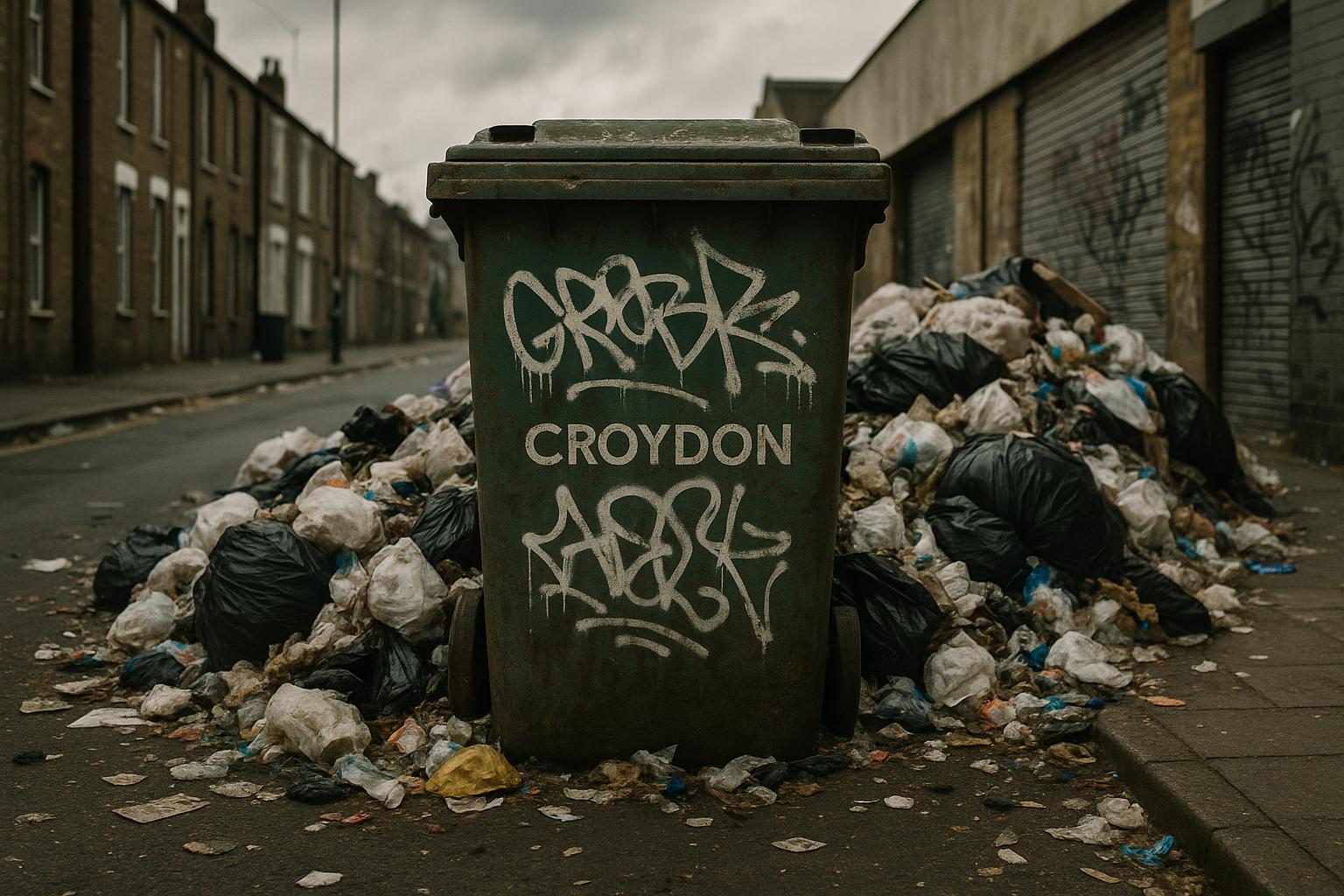Despite the lofty promises of a new local leadership, Croydon remains a grim symbol of mismanagement and neglect. Visualize a landscape overwhelmed by towering heaps of rubbish—disregard for basic civic duties is palpable across this borough, where fly-tipping festers unchecked. These piles, composed of everything from discarded fridges to broken gym equipment, have turned public spaces into hazardous dumping grounds, even where children should be safe. Such scenes are no longer anomalous but a dire reflection of a local authority in free fall.
Recent statistics paint a bleak picture: over 55,000 reports of fly-tipping in just the first eight months of this year—placing Croydon among the worst offenders in the country. Yet, rather than addressing these entrenched problems, the council's response appears wholly inadequate. With a debt ballooning to £1.6 billion and repeated declarations of bankruptcy, the supposed efforts at regeneration are hardly beyond superficial measures. This fiscal mismanagement has drained resources, reducing critical enforcement and cleaning services to a shadow of what is needed.
Meanwhile, opportunistic rogue waste collectors exploit the chaos, using social media to lure residents into illegal dumping schemes. Hazardous materials—and sometimes even raw meat or asbestos—are often left behind in these illegal sites, risking public health. Enforcement? A token gesture. In the past year, only a handful of prosecutions for littering highlight a disturbing disregard for rule of law. The veneer of signage warning of fines and prison sentences does little to deter these criminals when enforcement remains so scarce.
Croydon’s social fabric is unraveling at an alarming rate. Crime figures reveal a community plagued by sexual offences, stalking, and harassment—some of the highest in London. Official police data shows over 1,200 sexual assaults and more than 2,500 stalking incidents in a single year. Drug-related crime, weapons possession, and public disorder rates are all well above national averages, making Croydon an unsafe place for families and honest citizens alike.
Residents’ stories offer a stark insight into this decline. Elderly locals recount infestations of rats and violent reprisals following complaints, while others describe a neighborhood fractured and distrustful. Shops shuttered due to open drug dealing and gang activity, police visibly absent, have become grim hallmarks of this urban decay. The borough is embroiled in controversy over the plethora of asylum hotels—an issue that’s often used as a scapegoat to shift blame for the chaos, yet offers little in the way of meaningful solutions.
The borough’s upcoming mayoral election next May promises more of the same if recent trends continue. This once vibrant community, with its potential, is being overwhelmed by short-sighted policies and financial mismanagement. A rising wave of anti-establishment voices—emboldened by national discontent—are increasingly skeptical that those in charge can turn the tide. The recent bizarre incident—such as the party’s candidate for Croydon having passed away months before selection—only underscores the chaos and disarray infecting local governance.
Croydon’s ongoing decline is a damning testament to how left-wing policies and hollow promises have failed to stem the tide of social and economic breakdown. Instead of leading with pragmatic solutions—such as cracking down on illegal dumping, restoring law and order, and ensuring proper funding for local services—the current establishment appears content with cosmetic fixes and finger-pointing. For the residents of Croydon, the question is clear: when will we see real change, or will this borough remain a symbol of neglect and failure?
Source: Noah Wire Services
